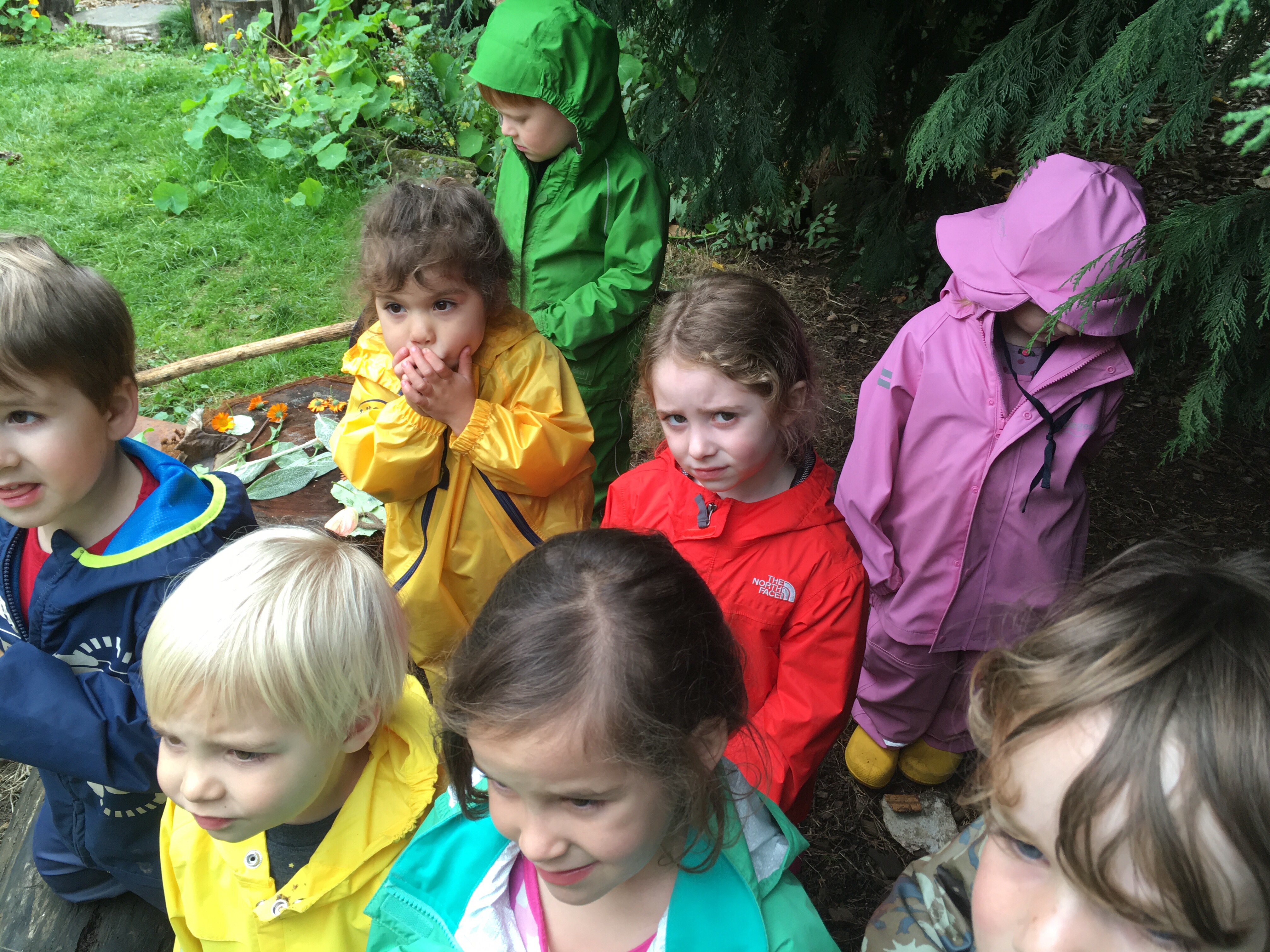This is one of our favorite songs right now. Thanks to Wikipedia, I just learned that this song originated in 13th century England. There are dozens of recordings out there (Pete Seeger!) and several picture books, including one illustrated by Peter Spier that we will read next week.
When we sing it, we alternate gender pronouns, he/she/they. Mommy foxes hunt, too! Here are the words with gender-neutral pronouns.
The Fox Went Out On a Chilly Night
The fox went out on a chilly night, they prayed to the moon to give them light,
for they’d many a-mile to go that night, before they reached the town-o, town-o, town-o,
many a-mile to go that night before they reached the town-o.
They ran ’til they came to the great big bin, the ducks and the geese were kept there-in,
they said, “A couple of you will grease my chin, before I leave this town-o, town-o, town-o,
a couple of you will grease my chin before I leave this town-o.”
They grabbed the grey goose by the neck, flung the little one over their back,
they didn’t mind the quack-quack-quack, and the legs all dangling down-o, down-o, down-o,
they didn’t mind the quack-quack-quack, and the legs all dangling down-o.
Then Old Mother Pitter-Patter jumped out of bed, out of the window she stuck her head,
crying, “John, John, the grey goose is gone, and the fox is on the town-o, town-o, town-o,
John, John, the grey goose is gone, and the fox is on the town-o!”
Then John, he ran to the top of the hill, blew on his horn both loud and shrill [toot-toot-toot!],
the fox, they said, “I better flee with my kill, they’ll soon be on my trail-o, trail-o, trail-o,”
the fox, they said, “I better flee with my kill, they’ll soon be on my trail-o.”
They ran ’til they came to their cozy den, there were the little ones, eight, nine, ten, they said,
“Mommy (Daddy) better go back again, it must be a mighty fine town-o, town-o, town-o,”
they said, “Daddy (Mommy) better go back again, it must be a mighty fine town-o.”
Then the fox and their wife, without any strife, cut up the goose with a carving knife,
they never had such a supper in their life, and the little ones chewed on the bones-o, bones-o, bones-o,
they never had such a supper in their life, and the little ones chewed on the bones-o.
The fox went out on a chilly night, they prayed to the moon to give them light,
for they’d many a-mile to go that night, before they reached the town-o, town-o, town-o,
many a-mile to go that night before they reached the town-o.
(If you even approximate the melody, your child will be delighted to sing along. It’s folk music, just sing!)

